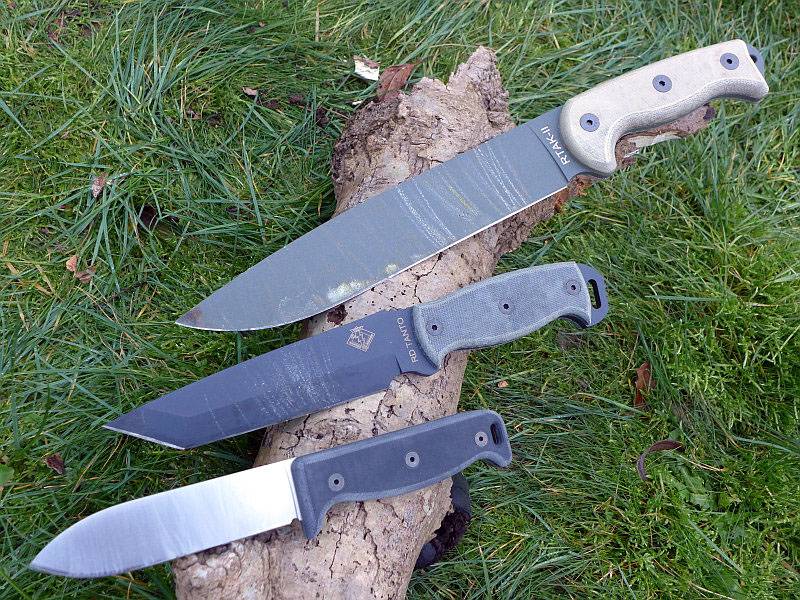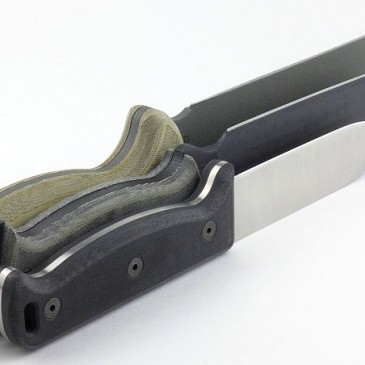After selecting a set of three knives I felt represented what Ontario Knife Company bring to the market (Blackbird SK-5, Ranger RD Tanto and RTAK-II), I originally intended to present a single group review.
As I have got to know them better, I found that individual reviews would work better, so this page is to tie together the review series and provide a single point of reference to link to all three reviews, plus provide a few group shots for comparison.
This article includes some exclusive images and comments, so is worth getting to the end of before going to an individual review.
03 Apr 2016 – ‘Ranger’ RD Tanto
06 Apr 2016 – RTAK-II
18 Apr 2016 – Blackbird SK-5
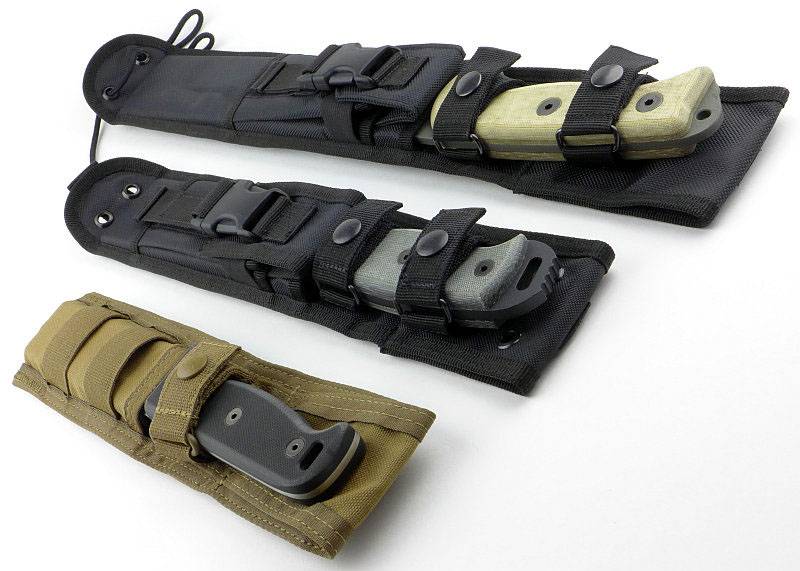
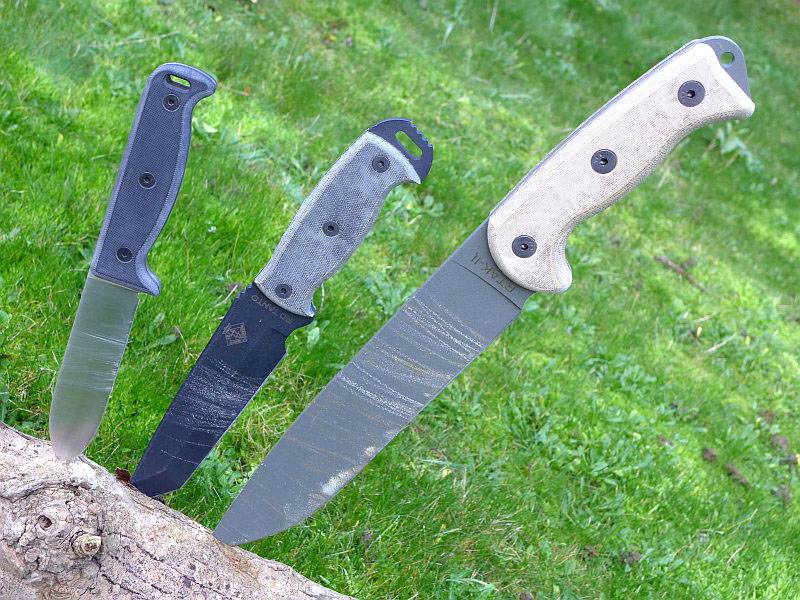
Explained by the Maker:
The reasons for certain design choices may not be clear when simply looking at an object, so this section is intended to give an insight into the thinking behind a design by speaking to the designer themselves.
See individual reviews for this exclusive information.
A few more details:
The images at the beginning of this group review page show the unsheathed knives together. This image better shows how the sheathed knives compare in size.
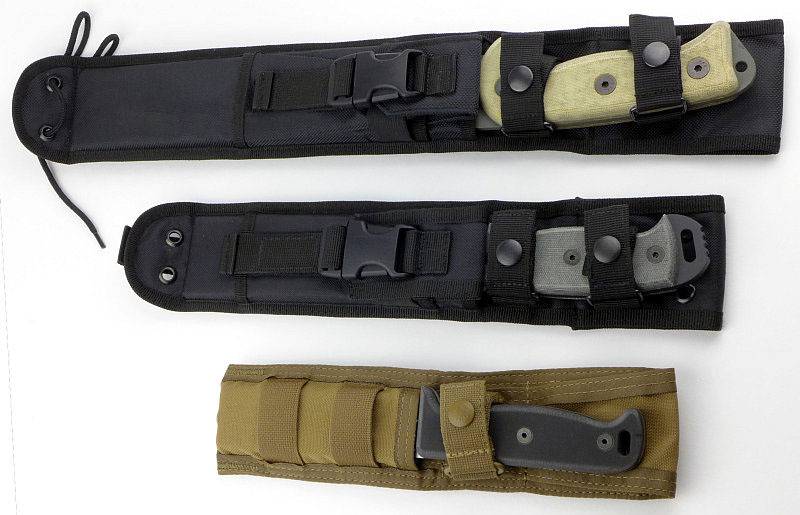
Looking at blade stock thickness, top left is the RTAK-II, middle RD Tanto and bottom right is the Blackbird SK-5.
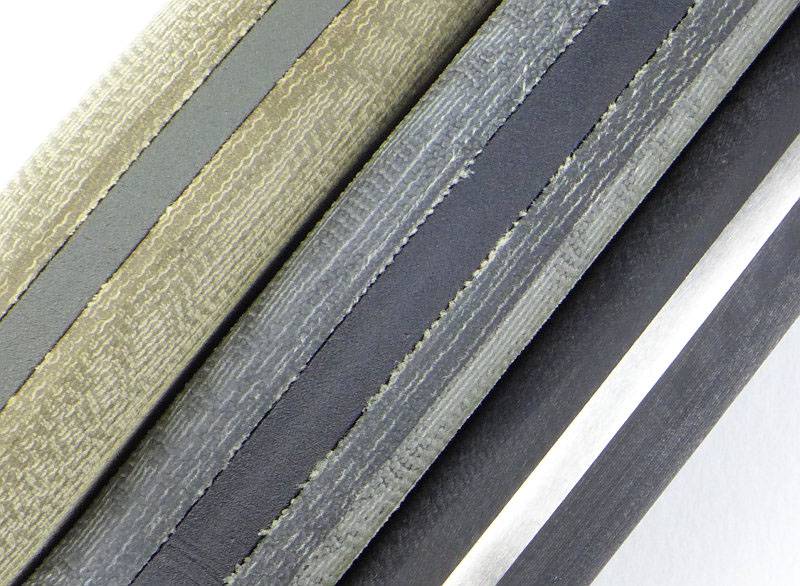
Moving back to show the three blades sitting next to each other.
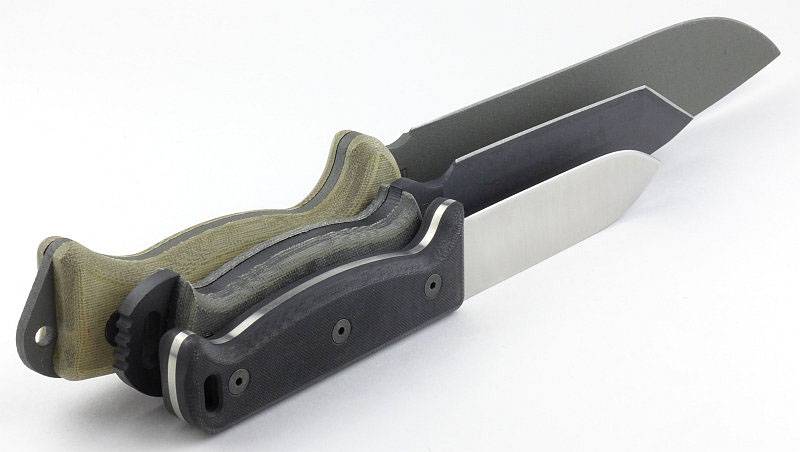
The Blade and Handle Geometry:
Most knives specifications have a basic description of the blade geometry, but in this section I will be taking a more detailed look at geometry and balance.
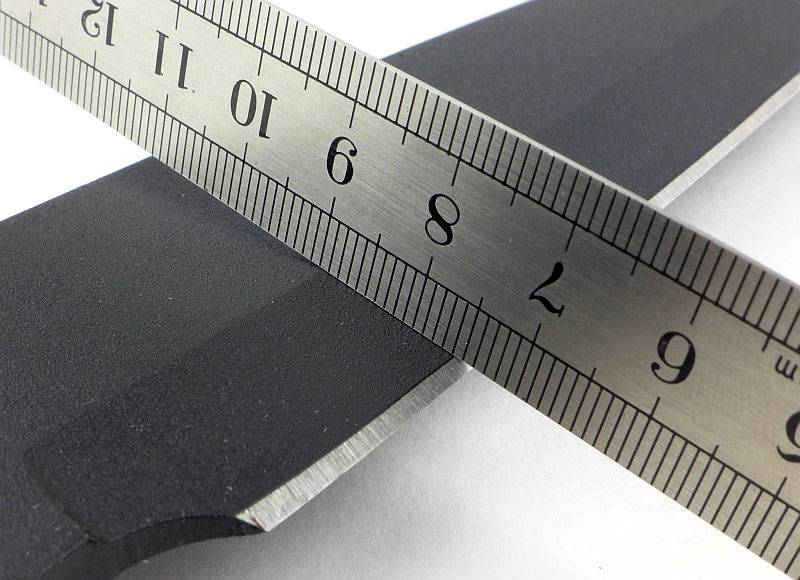
Using a set of gauges and precision measuring equipment including a Vernier protractor, callipers, fixed radius gauges and the unique Arc Master adjustable radius gauge (the one that looks like a crossbow).
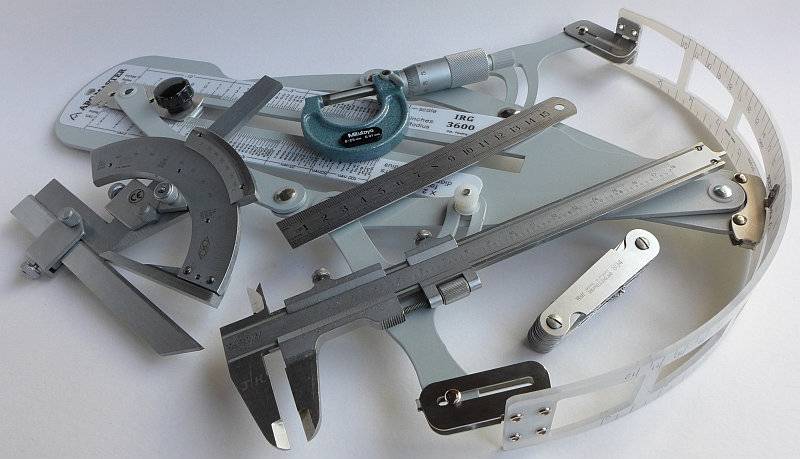
These measurements have been tabulated and are presented along with a few reference blades (8″ Chef’s Knife, 5.5″ Santoku and the popular Fällkniven F1).
Key aspects such as the primary bevel angle, grind type, blade depth, blade thickness, length, weight are detailed, along with balance information.
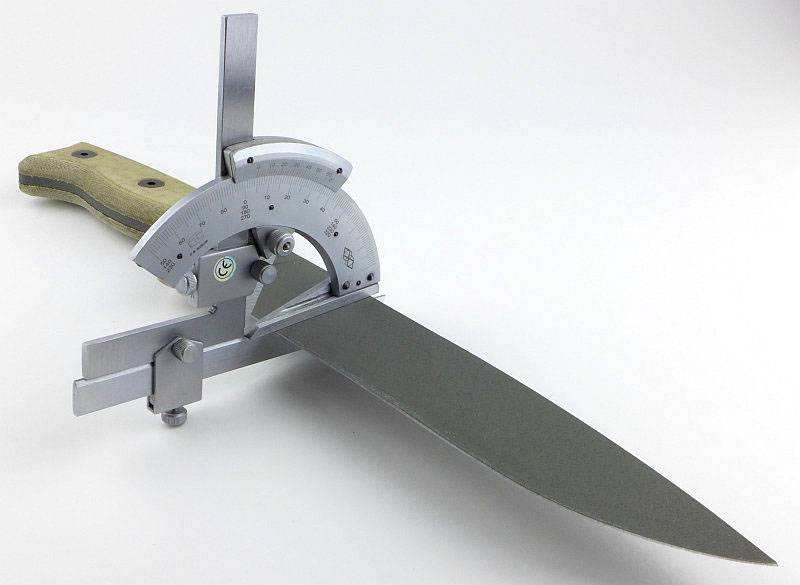
The ‘Balance relative to the front of the handle’ tells you if the knife will feel front heavy, or if the weight is in your hand (a positive value means the weight is forward of the front of the handle). The ‘Balance relative to the centre of the handle’ indicates how close to a ‘neutral balance’ the knife has in the hand.

In the case of full convex grinds the approximate centre of the grind is used for the primary bevel angle estimate. This table includes the parameters for all the OKC knives in this series of reviews.
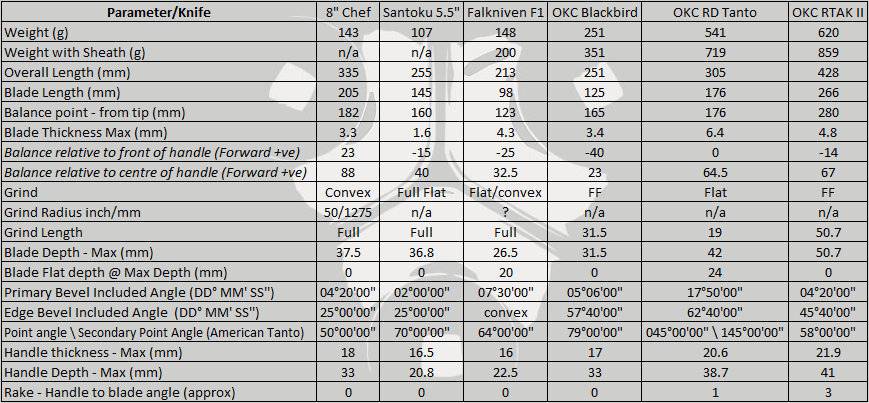
What they are like to use?
There is too much detail to describe each of these blades strengths and weaknesses in detail, so I’ll just use this opportunity to show the pointed-stick comparison side-by-side
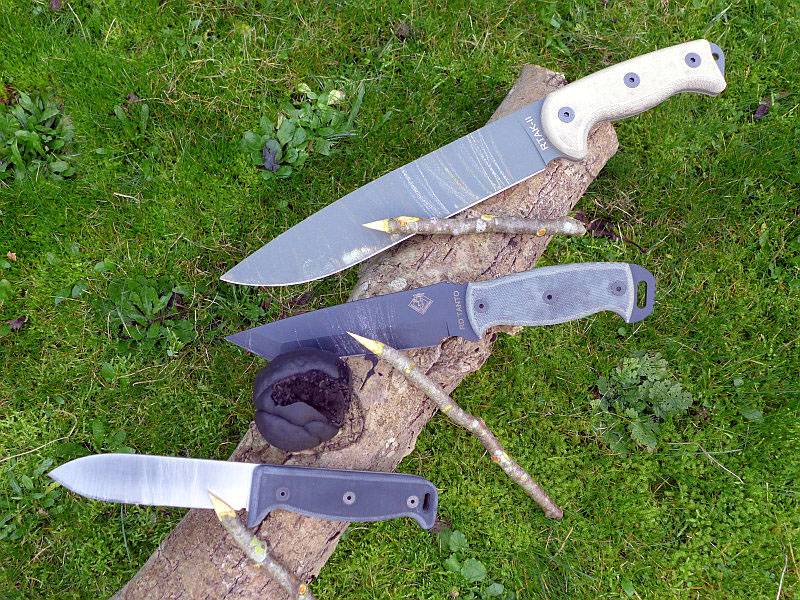
The RTAK-II is an excellent cutter.
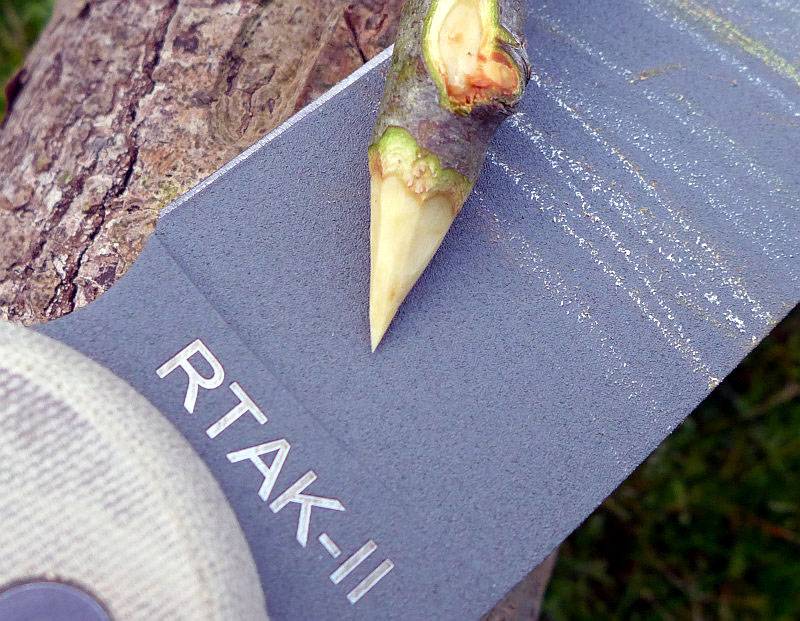
As a super tough extraction/digging/rescue tool, the RD Tanto struggles a bit for some basic cutting. It excels at heavy tasks though.
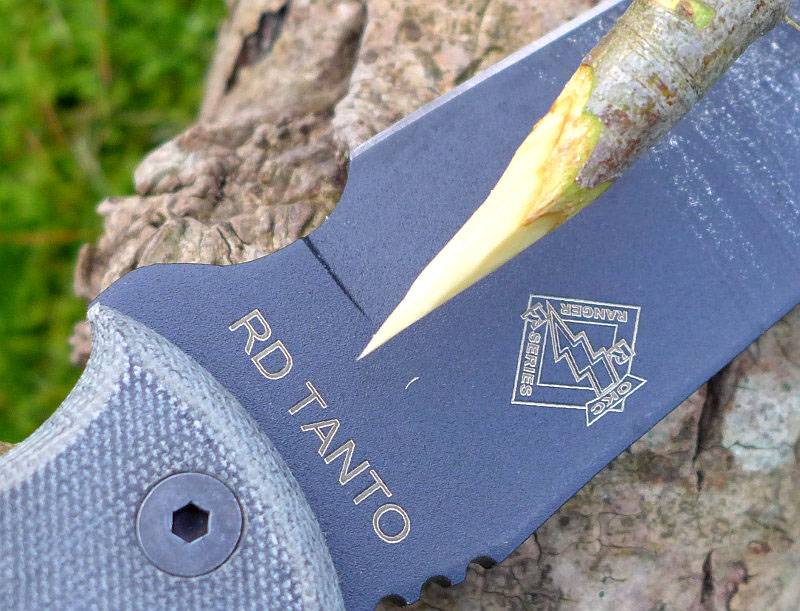
With the factory edge the Blackbird works well enough, but the edge angle is steep. This photo is from before an edge reprofiling after which the SK-5 cuts furiously well.
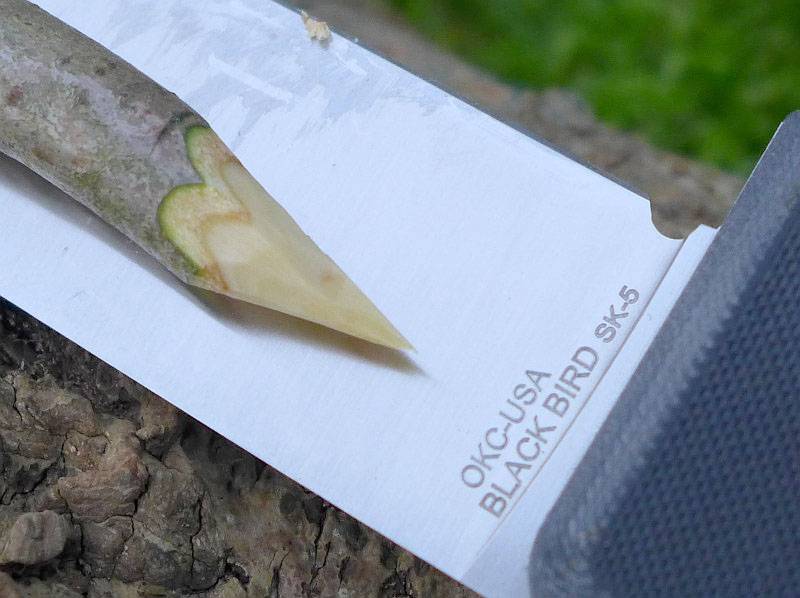
Review Summary
The views expressed in this summary table are from the point of view of the reviewer’s personal use. I am not a member of the armed forces and cannot comment on its use beyond a cutting tool or field/hunting knife.
Something that might be a ‘pro’ for one user can be a ‘con’ for another, so the comments are categorised based on my requirements. You should consider all points and if they could be beneficial to you.
Here I’ve included a very basic summing up of each knife. See individual reviews for detailed information.
| _______________________________________________ | _______________________________________________ |
| Knife | In a nutshell |
| _______________________________________________ | _______________________________________________ |
| Blackbird SK-5 | No-nonsense survival knife |
| Ranger RD Tanto | Super tough extraction/rescue tool |
| RTAK-II | Fantastic all-rounder |
